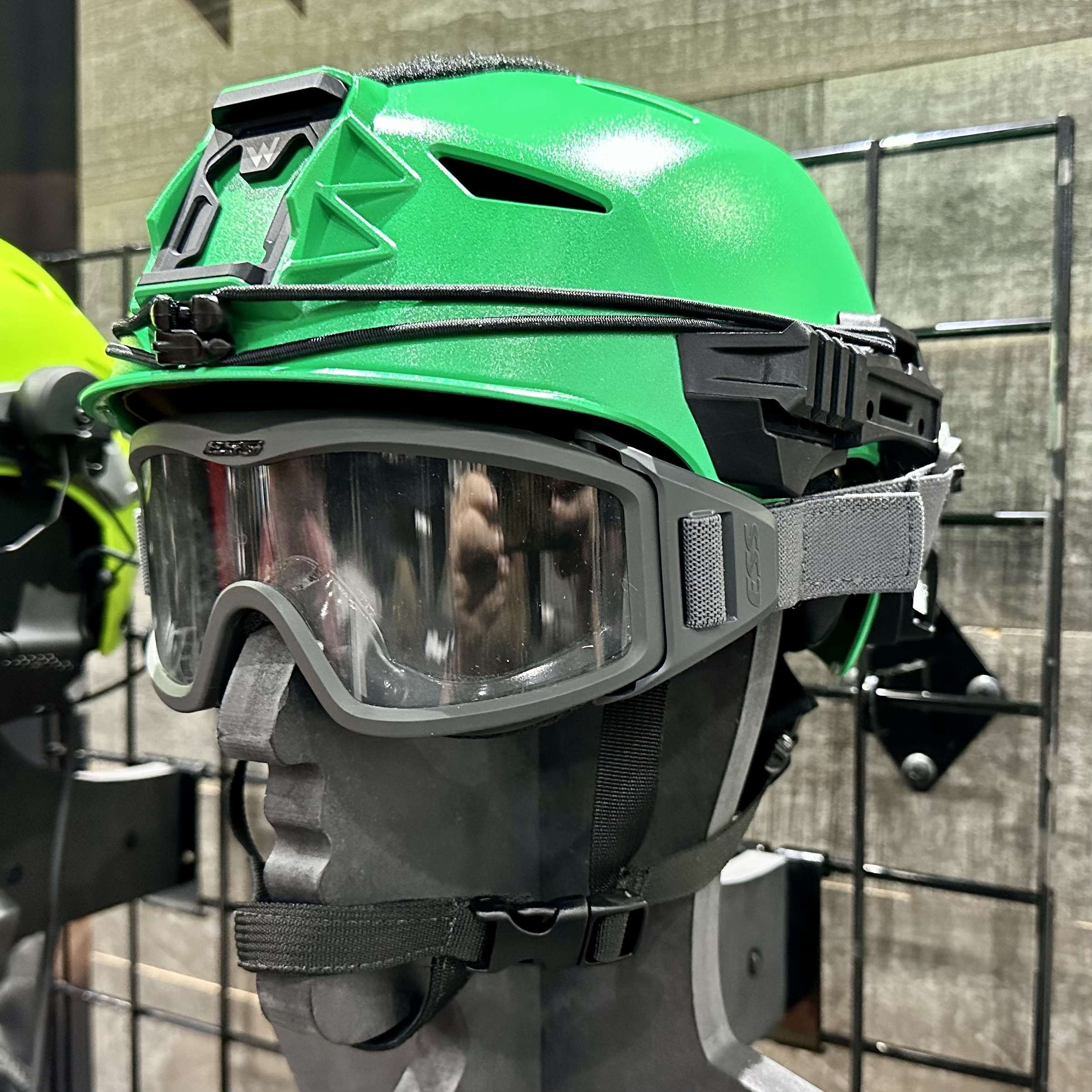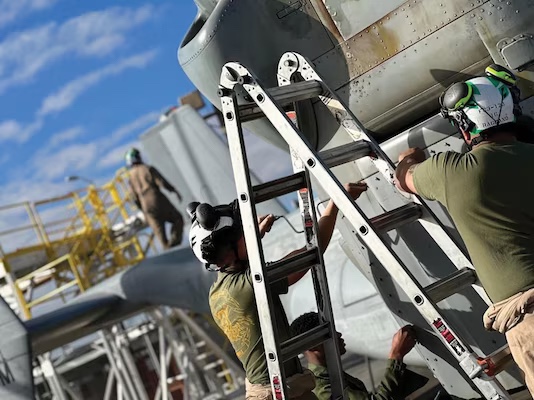Three things about this new helmet for maintainers which replaces the classic Cranial.

1. It’s built by Team Wendy and based on the Exfil bump helmet.
2. This is one of the rare occasions where Marines get something first.
3. They are coming in custom colors for each of the aviation specialties, for example Red for Aviation Ordnance.
The Naval Aircrew Systems Program Office is fielding new headgear, the Head Gear Unit Number 98/Personal Use (HGU-98/P), that improves both head and hearing protection for fleet Marine Corps aviation maintainers.

The program office incorporated the latest advancements and information gained from market research, lab testing and fleet assessments to select the new Marine Corps maintenance cranial, the Team Wendy Exfil Light Tactical Polymer helmet, which is a Commercial-off-the-Shelf solution.
“The HGU-98/P provides improved impact protection and increased hearing protection, which are long overdue improvements that our maintainers deserve,” said Capt. Carey Castelein, program manager.
Since the inception of protective headgear in the 1950s, a major challenge has been to design helmets that offer the required impact and hearing protection while providing a system that provides a comfortable fit. Because flight lines and flight decks are notoriously loud, a safe and comfortable helmet is mission critical.
The new cranial comes in two sizes and an alternate H-shaped back retention system to accommodate a hair bun. The HGU-98/P also features two different styles of hearing protection, both rail mounted to the helmet, with either X4 ear cups for a slimmer fit or X5 with larger ear cups but with better sound attenuation.
“Through research, test and fleet assessments, our team was able to determine the best possible solution for improved head and hearing protection, taking into account cost, performance and user feedback,” said Jennifer Bartnick, program office team lead.
Squadrons that began receiving the HGU-98/P flight deck helmet system in October 2022 have given favorable feedback. Fielding to Marine Corps aviation units will continue through the end of the year, and the cranial with additional capability will begin delivery next year.
From the Naval Aircrew Systems Program Office

